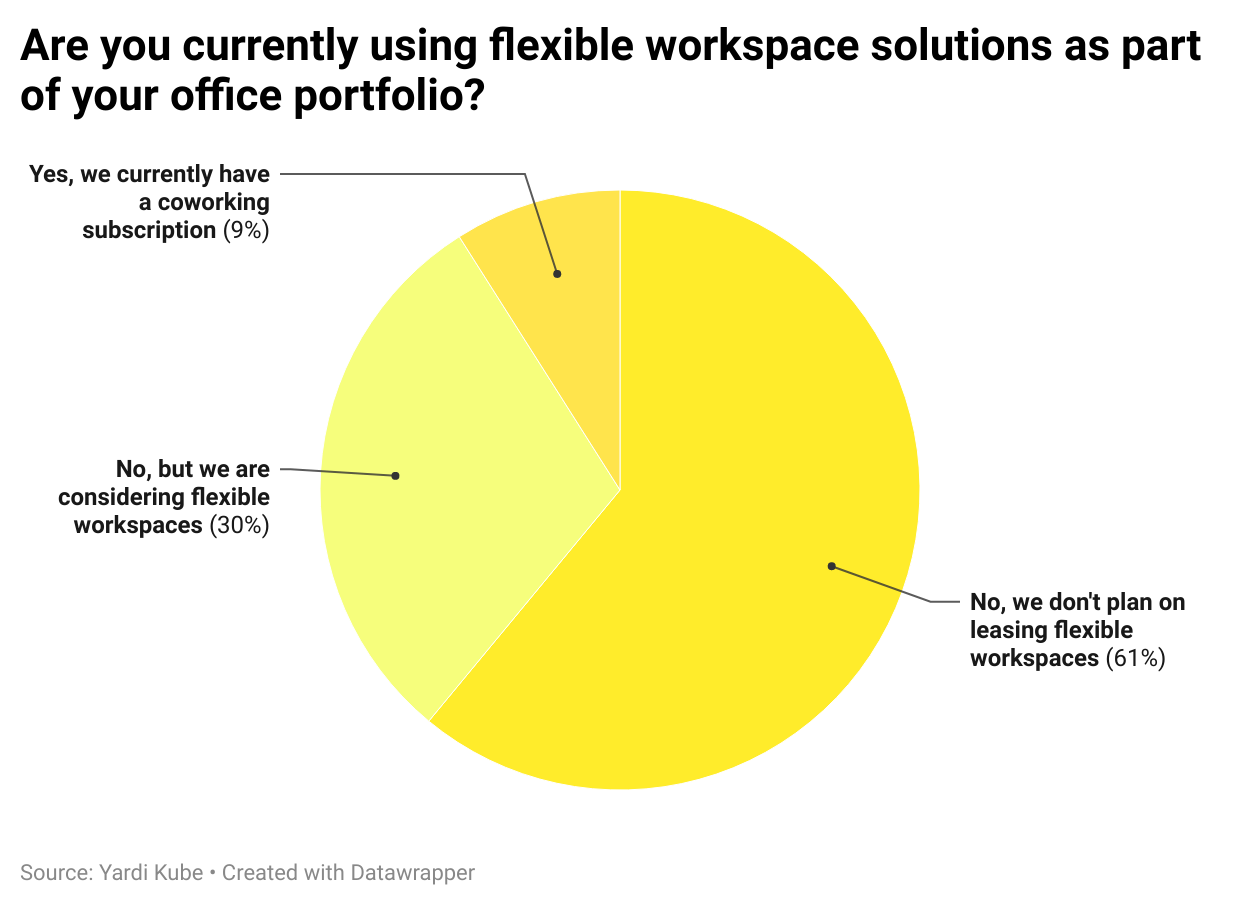Posted by Janet Stroud — August 19, 2022 — With hybrid and remote work becoming the norm, the demand for coworking and flexible workspace is at an all-time high, according to the latest survey from Yardi Kube, a space management software provider part of Yardi Systems. As many organizations move towards bringing employees back to a traditional office workspace that fosters collaboration and empowers productivity, changing workforce expectations must be taken into account.
To better understand occupiers’ needs, Yardi Kube conducted a survey among prospective office tenants addressing the issues of office space footprint, how companies are adjusting to flexible work, and the reasons why business leaders are looking into coworking spaces as a replacement for traditional office leases. The five-question survey was posted on CommercialCafe.com and PropertyShark.com, both Yardi-owned websites, with 1,118 respondents across the United States.
Below are some highlights of this study:
- To embrace the flexibility demanded by the future of work, 91% of respondents find that in-office work remains essential to company well-being, as they would either not change their office footprint or they would increase it in the near future.
- As a whopping two-thirds of the commercial real estate professionals surveyed plan on embracing some scenario of hybrid work, almost half of them (47%) indicated they would require no in-office attendance or at most two days per week for their teams.
- Along the same lines, for more than a third of respondents, flexible/coworking space solutions are something they consider to be a better alternative for their companies, as they are either already using such spaces or planning on using them.
Cost savings and flexibility drive interest in coworking
When asked to pick the top three reasons why they are choosing a flexible workspace, most of the answers (24%) pointed towards cost savings. Next on the list of priorities (17%) is the flexibility to increase or decrease the office footprint as needed. Short-term lease availability, preferred by 10% of respondents, comes in third.
Additional factors contributing to the interest in coworking spaces include the ability to facilitate a hybrid work model (8%) and access to a larger talent pool, as the recruiting limitation based on location is eliminated (7%).
Offices remain fundamental
When respondents were asked how their space requirements would change in the next three years, a majority (56%) indicated that their office footprint would not change. Another 35% indicated that they plan on increasing their office space footprint, which means that they would require even more space to accommodate their employees. Finally, only 9% of respondents indicated that they plan on downsizing their footprint, making their offices smaller.
For additional results, see Disrupting the Office: Over a Third of Occupiers Consider Coworking for In-Office Work on the Yardi Kube website.






